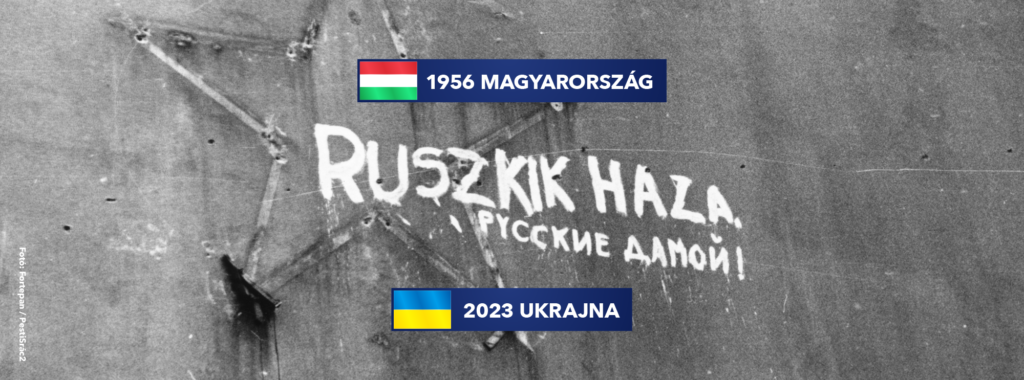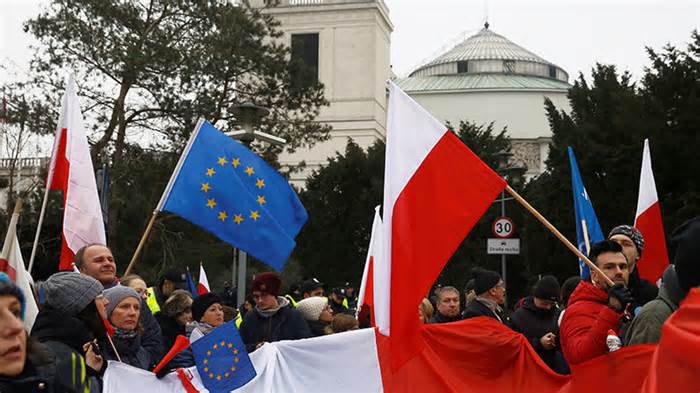Hungary – The U.S. Ambassador’s April 12 press conference did not come as a surprise. The opposition press had already announced probable U.S. sanctions against Hungarian officials. On Wednesday, Ambassador David Pressman criticized Hungary for its cooperation with Russia and announced sanctions against the International Investment Bank (IIB), which has been based in Budapest since 2019.
Growing tensions between Hungary and the United States
Viktor Orbán was the first European leader to speak out publicly in favour of Donald Trump in 2016, and after Trump was elected Hungary had good relations with the United States, following several years of American interference and tensions under President Barack Obama.
Since Joe Biden’s election, however, the climate between the United States and Hungary has grown tense again, and the new ambassador appointed by the Biden Administration in September 2022, David Pressman, has only made matters worse, not least by repeatedly attacking Hungary for refusing to align with the U.S. position on the war in Ukraine. Being “married” to another man with whom he has adopted two boys, Pressman had said during U.S. Senate hearings in June 2022 that he was concerned about Hungary’s adherence to democracy, judiciary, and freedom of the press.
Since he took office, the new American ambassador has made a name for himself in Hungary with his cutting remarks and influence operations. For example, he published a quiz, asking people to guess whether some selected quotes were from Hungarian leaders or Vladimir Putin, and he is now supervising a national poster campaign drawing parallels between the Hungarian uprising of 1956 and Russia’s invasion of Ukraine, while using the colour scheme and font typically used in Hungarian government communications. The message on these posters repeats a slogan of the 1956 Hungarian insurgents – “Russians, go home!” (in Hungarian and Russian) – followed by the statement: “Peace will only be possible when the Russian occupation troops leave.” This has not been well received in Hungary, where 91% of the population wants a cease-fire and immediate peace negotiations, and where people remember the agitating role of the United States before and during the 1956 insurrection, and how Hungary was then abandoned during the repressions that followed.

Pressman arguing with Orbán’s government in the media
For months, the exchanges via the media between the U.S. ambassador and Hungary’s Foreign Minister, Péter Szijjártó, have been making headlines in the Hungarian press. “We welcome ambassadors from abroad. […] We do not welcome a governor or regent who, I suppose, is sent to tell us how to live in our own homeland”, Szijjártó said earlier this year, to which Ambassador Pressman replied that the United States does not consider the attempt to extend Russia’s borders as an internal Hungarian matter.
In his state of the nation address, Prime Minister Viktor Orbán referred to the current tensions with the United States as follows: “Fortunately the White House has retained its sense of humour, and instead of a ‘good friend’ [Obama’s chargé d’affaires in Hungary was named Andre Goodfriend, ed.], President Biden has sent us a ‘press man’, an ambassador to ratchet up the pressure on us and do whatever it takes to press the Hungarians into the camp of war: to press a statement out of us in which we commit ourselves to joining in. This is fine; humour can help friendship survive hard times. But we should avoid the possibility that next time they send someone called Puccini!”
More recently, a leaked confidential U.S. intelligence memo has shown that the United States has been spying on its ally, as well as accusing Hungary of an escalation in the level of anti-American rhetoric in its discourse. In his April 12 press conference, David Pressman, who is seen by the Hungarian conservative right as the embodiment of leftist-liberal progressivism and American imperialism, further increased the pressure on Hungary by announcing his country’s decision to sanction the BII, a Russian banking institution dating back to the Soviet era that, after a long period of decline in which successive shareholders left it, moved its headquarters from Moscow to Budapest in 2019. BII’s deputy director Imre Laszlóczki, a Hungarian citizen, has now been put on the sanctions list. Ambassador Pressman explained on Wednesday that the United States had repeatedly expressed its concerns about this bank, and that the Biden Administration had finally decided to intervene in the face of Hungary failing to take action.
Pressman only took questions from the opposition media RTL and refused to comment on leaks about American spying activities against its allies, among them Hungary.
On April 13, Hungary announced that it was leaving the International Investment Bank in which it had a 25,27% stake.




